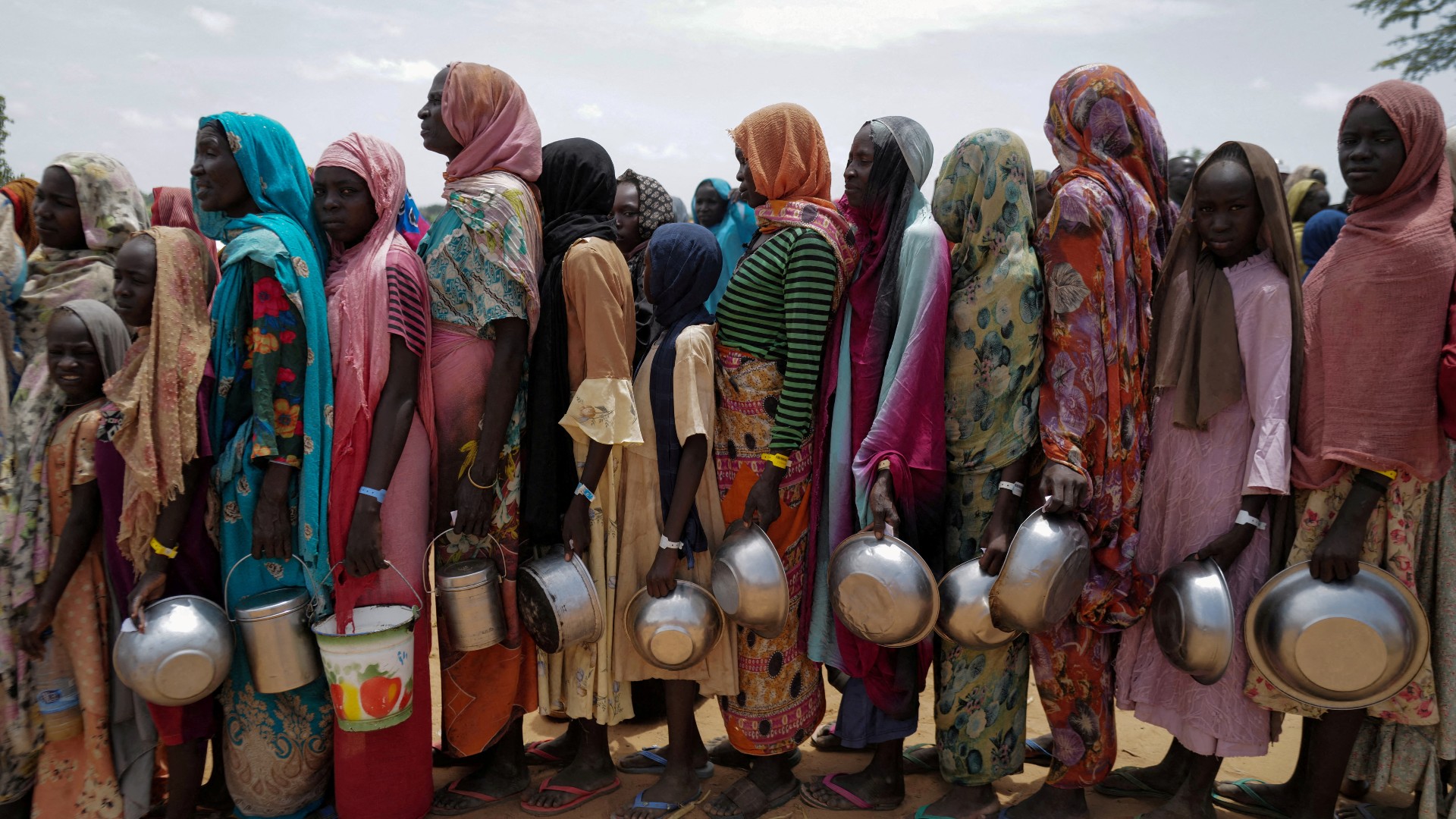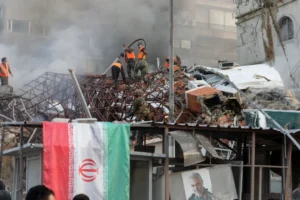As Rapid Support Forces paramilitary fighters mass outside North Darfur’s al-Fasher, former rebel groups are throwing their weight behind the Sudanese military, with fears looming of a bloody battle ahead.
Yet the rebels that once fought the Sudanese state and have acted as a government-backed security force for three years are themselves divided over which side to back in Sudan’s conflict, deepening polarisation in war-wracked Darfur.
Darfur’s former rebel movements have largely stayed on the fence since Sudan’s war broke out on 15 April, despite the sprawling western region being the scene of the most fighting outside of Khartoum.
Yet in recent weeks the RSF has made stunning advances in Darfur, with massacres and abuses following them. On Monday, Sudanese army soldiers withdrew from El-Daein, the state capital of East Darfur, leaving four out of Darfur’s five states in RSF hands.
Only North Darfur’s al-Fasher remains under Sudanese Armed Forces (SAF) control. And it is here that rebel groups appear to be drawing their red line.
“We have been committed to the position of neutrality in order to keep the unity of Sudan and avoid the extension of the war,” the Sudanese Liberation Movement (SLM) and the Justice and Equality Movement (JEM), the two largest former rebel groups, said in a statement on 16 November
The prospect of Sudan being divided prompted them to abandon their neutrality, they added.
‘We have seen the crimes that are being committed against our people, including killing of local leaders, raping women and displacement of millions’
– SLM and JEM statement
“We have seen the crimes that are being committed against our people, including the killing of local leaders, raping women and the displacement of millions of people,” the statement read, accusing Chad of supporting the RSF.
The Rapid Support Forces relies on supply lines from Chad, as well as Libya and the Central African Republic, making its foothold in Darfur all the more important.
The paramilitary force grew out of the Janjaweed, an infamous militia made up of Arab tribal fighters that the former government of Omar al-Bashir used to wage war on the Darfuri rebels from 2003-2005.
The rebels, who were largely drawn from Black indigenous communities, rose up against Khartoum over longstanding discrimination and marginalisation. Bashir’s Janjaweed-led crackdown led to 300,000 deaths in a war often described as genocidal.

Arko “Minni” Minawi, former rebel leader and governor of Darfur, last week warned from Port Sudan that history was repeating itself.
He was speaking at a news conference announcing his backing of the Sudanese military from its stronghold on the eastern coast, standing alongside Jibril Ibrahim, another ex-rebel and current finance minister.
“We see that the same crimes that were committed two decades ago are repeating themselves again,” he said.
In 2020, an agreement signed in Juba created a joint security force in Darfur including Minawi’s SLM and Ibrahim’s JEM, and placed rebel leaders in senior governmental positions.
Yet the force was nowhere to be seen when the RSF and its allied Arab militias tore through West Darfur in June and earlier this month, in a spate of mass killings targeting the local Masalit tribe.
Similarly, Nyala and Zalingei, the state capitals of South Darfur and Central Darfur respectively, fell to the RSF in late October with apparent ease. Sudanese soldiers have complained of being abandoned by the military’s central command and left without supplies or reinforcements.
The SLM and JEM have thousands of fighters between them, and any battle for al-Fasher would likely be far more prolonged and difficult.
Staying neutral
Adding to the uncertainty is the stance of five other rebel groups, who have rejected Minawi and Jibril’s declaration.
They are headed by al-Hadi Idriss, who last month was removed from the Sovereign Council, an executive presidential body dominated by army chief Abdel Fattah al-Burhan; al-Tahir Hajar, who is also a member; and Livestock Minister Hafiz Abdul Nabi.
‘All these factors make it really impossible for the rebels to stay neutral as well as staying in the government’
– Mohamed Badawi, Sudanese analyst
“We are rejecting any declaration that can drag the region into full civil war and we call on the two sides to stop the escalation and engage actively in the negotiations through the Jeddah negotiations to achieve a serious ceasefire,” they said in a statement, referencing US- and Saudi-backed talks between the RSF and SAF.
The RSF has claimed the rebel groups came to an agreement with the paramilitary force to provide Darfur with security, which the factions declared as “baseless allegations”. After the denial, the RSF claimed 10,000 rebel fighters had joined its ranks.
Meanwhile, sources in al-Fasher say the RSF is massing fighters outside the city.
Last week, sporadic clashes already broke out between the RSF and pro-SAF rebel groups. The city holds thousands of civilians who fled other parts of Darfur, and both the US and UN have warned an assault could be catastrophic.
On Monday morning, the RSF declared control over East Darfur, publishing videos of its fighters in the army base it had been besieging.
Adam Eissa, a resident of El-Daein, told MEE by phone that there had been a buildup of forces outside the city before the assault, like at al-Fasher.
“Last Thursday, the RSF gathered thousands of its forces and went to besiege the army division in the area,” he told MEE over the phone.
A local leader, who asked not to be named, said that the SAF division withdrew without much fighting and the RSF took over after short indirect negotiations through the local leaders.
Since then, the RSF appointed its commander in El-Daein as governor of East Darfur.
Sudanese analyst Mohamed Badawi said the split between rebel groups had been escalating since the October 2021 military coup, which was led by Burhan and RSF leader Mohammed Hamdan Dagalo, better known as Hemeti.
Badawi said it would be increasingly difficult for the former rebels to remain neutral while keeping their posts in government.
The 2020 Juba agreement, Badawi said, “was designed only for power sharing without addressing the root causes” of the issues in Darfur.
“This tension increased due to the military coup, which got the support of the movements of Jibril and Minawi but was rejected by the other groups headed by al-Hadi Idriss,” added Badawi, who is a senior researcher of the African Centre for Justice and Peace Studies.
“All these factors make it really impossible for the rebels to stay neutral as well as staying in the government, which is controlled by the Sudanese army.”
Source : Middle East Eye











